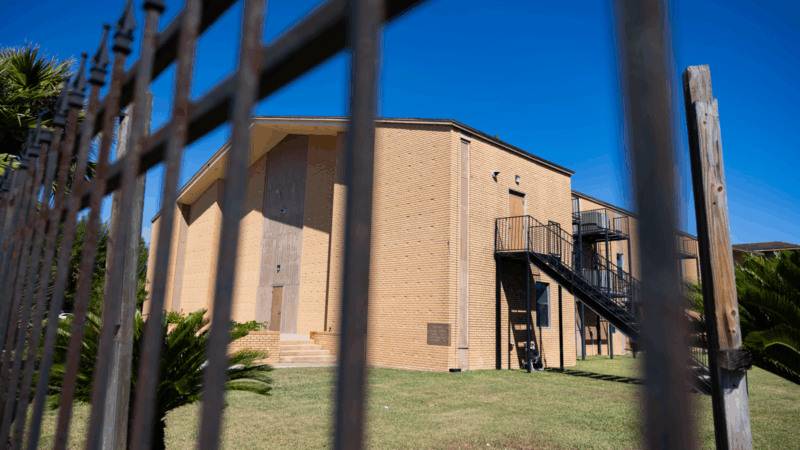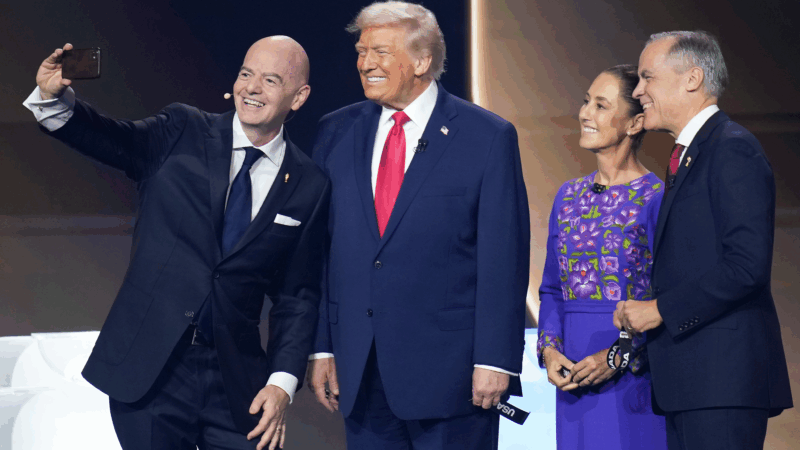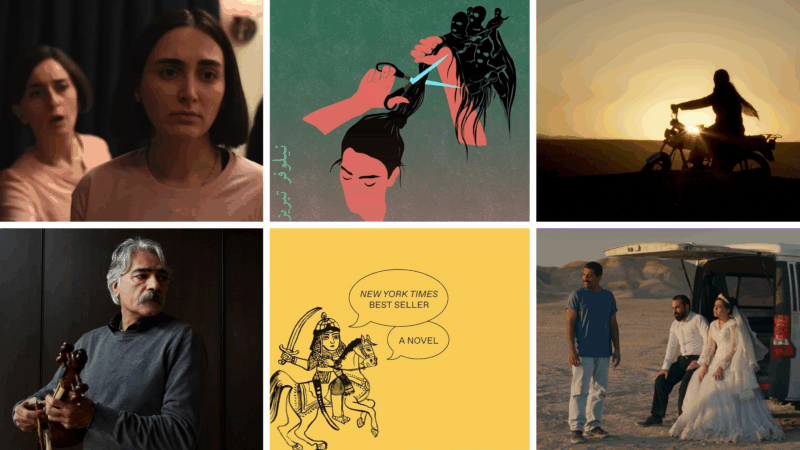Greetings from Moscow, Russia, where Lenin’s tomb attracts a new surge of visitors
Far-Flung Postcards is a weekly series in which NPR’s international team shares moments from their lives and work around the world.
The truth is, it’s been years since I visited the mausoleum. But I’ll never forget the first time. 30 years ago. As an exchange student. How my eyes struggled to adjust in the darkness. And then … there he was.
Vladimir Lenin. The Russian revolutionary and founder of the Soviet Union. And since his death in 1924, a wonder of chemistry, preserved in his crypt — under glass, asleep in his suit — barring the occasional removal for a re-embalming bath.
There were rules. No talking. No pictures. And no holding up the line. As I tried to take the silent scene in, a gruff guard signaled it was already time to move on.
In Soviet days, thousands lined up from all over the USSR to pay homage. That reverence gave way to indifference as the Soviet Union unraveled in the early 1990s. There were far more interesting — well, certainly more lively — things to see in the new Russia. There still are.
But news that the mausoleum is soon closing for repairs — until 2027 — has sparked a renewed surge of interest. The lines are back — less nostalgia for the Soviet Union, I suspect, than a last peek at a man frozen in time. Because who knows? There’s been talk of burying Lenin for years.
And so here I am again. Now middle-aged. The sun beats down. The guard signals that it’s our turn. A small group of us — soldiers, families, foreign tourists, me — make the long walk across Red Square toward the dark chamber. Lenin’s Tomb. A place where the idea still exists that everything, and nothing, changes in our lives. At least for now.
See more photos from around the world:
- Greetings from New Delhi, India, where performing monkeys spark delight — and ambivalence
- Greetings from Damascus, Syria, where a crowded bar welcomed post-Assad revelers
- Greetings from Alishan, Taiwan, whose red cypress forests offer timeless beauty
- Greetings from Odesa, Ukraine, where a Black Sea beach offers respite from war
- Greetings from Shenyang, China, where workers sort AI data in ‘Severance’-like ways
- Greetings from Palmyra, Syria, with its once-grand hotel named for a warrior queen
- Greetings from Mexico City, where these dogs ride a bus to and from school
- Greetings from the Galápagos Islands, where the blue-footed booby shows its colors
- Greetings from Afrin, Syria, where Kurds danced their hearts out to celebrate spring
- Greetings from Dharamshala, India, where these Tibetan kids were having the best time
Pregnant migrant girls are being sent to a Texas shelter flagged as medically risky
Government officials and advocates for the children worry the goal is to concentrate them in Texas, where abortion is banned.
The 2026 World Cup faces big challenges with only 100 days to go
Will Iran compete? Will violence in Mexico flare up? And what about funding for host cities in the U.S.? With only 100 days left before it beings, the 2026 World Cup in North America is facing a lot of uncertainty.
A glimpse of Iran, through the eyes of its artists and journalists
Understanding one of the world's oldest civilizations can't be achieved through a single film or book. But recent works of literature, journalism, music and film by Iranians are a powerful starting point.
Mitski comes undone
She may be indie rock's queen of precisely rendered emotion, but on Mitski's latest album, Nothing's About to Happen to Me, warped perspectives, questionable motives and possible hauntings abound.
This quiet epic is the top-grossing Japanese live action film of all time
The Oscar-nominated Kokuho tells a compelling story about friendship, the weight of history and the torturous road to becoming a star in Japan's Kabuki theater.
The Live Nation trial could reshape the music industry. Here’s what you need to know
On Tuesday opening statements will begin for the federal antitrust trial against Live Nation, one of the largest entertainment companies in the world.








